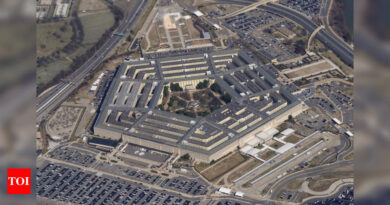‘Black day’: Israelis up in arms against Bibi’s judicial reform – Times of India
Monday’s vote — on the first of a series of measures that make up PM Benjamin Netanyahu’s divisive judicial overhaul — reverberated across the country. It came despite seven months of fierce popular resistance, Netanyahu’s promises of an eventual compromise and a rare warning against the overhaul from Israel‘s closest ally, the United States.
The bill was unanimously passed by the governing coalition, which includes ultra-nationalist and ultra-religious parties, after the opposition stormed out of the hall shouting “Shame!” But opponents say they are not done fighting: Civil rights groups submitted petitions to the Supreme Court, calling for the new law to be overturned, and protests ro iled the country’s streets anew.
Hundreds of thousands of people fanned out in Tel Aviv overnight, burning tires, setting off fireworks and waving national flags. In central Jerusalem, police mounted on horses unleashed water cannons and a foul-smelling spray at protesters, arresting nearly 40 pe ople. Videos showed police officers dragging protesters, beating people until they bled and violently pushing them back with batons. At least 10 officers were injured, police said.
Thousands of officers in the military reserves have announced they’ll no longer turn up for voluntary service — a blow that could undermine the country’s operational readiness. Israel’s military took its first known internal disciplinary action over the protests. One reservist was fined 1,000 shekels ($270) and another given a suspended 15-day jail sentence for ignoring call-ups.
The crisis has opened a deep divide in Israeli society and hit the economy hard by triggering foreign investor flight, weakening the shekel and raising the spectre of a general strike by the largest labour union, the Histadrut, which represents 8,00,000 workers. High-tech business leaders are considering relocation. The Israeli Medical Association declared a strike, saying its members would handle only emergencies and critical care needs.
First elected to top office in 1996 and now in his sixth term, Netanyahu, 73, has cast the judicial overhaul as a redressing of balance among branches of government. Opponents say it will erode the only check on the majority rule.

